How To Get The Sleep You Need
Science-backed strategies for superior slumber

Mary Ladd was cursed with a spouse who could sleep through anything. “My insomnia was so lonely, because I could hear him sleeping in bed next to me,” says the 45-year-old San Francisco writer and mother of one. “The fact that he could sleep through the night—and I couldn’t—reminded me that my eyeballs were dry and tired.” Part of her problem, she knew, was that she had some bad habits: too much great San Francisco coffee, for one. But some of it felt out of her control. A breast cancer survivor with an elderly mother, Ladd found that her worries would inevitably stampede through her mind at bedtime. “Ironically, my mom’s death brought some relief” to her insomnia, Ladd says. “I had been worrying so much about her.”
Is there anything worse than desperately needing sleep and not being able to get it? It’s not just a matter of feeling tired; over the long run, sleep deprivation can contribute to depression, obesity, diabetes, stroke, heart attack, Alzheimer’s disease, and cancer. “The silent sleep-loss epidemic is the greatest public health challenge we face in the 21st century,” argues Matthew Walker, PhD, of the University of California, Berkeley, in his new book, Why We Sleep. “Scientists such as myself have even started lobbying doctors to start ‘prescribing’ sleep.”
Unfortunately, telling patients to sleep more doesn’t mean they’ll be able to do it. Nor does repeating the hard-to-follow advice they’ve heard a million times: Exercise more, stick to a sleep schedule, avoid caffeine in the evening. As a result, a full third of adults report that they fail to get the recommended seven to nine hours a night on a regular basis.
Denne historien er fra May 2019-utgaven av Reader's Digest US.
Start din 7-dagers gratis prøveperiode på Magzter GOLD for å få tilgang til tusenvis av utvalgte premiumhistorier og 9000+ magasiner og aviser.
Allerede abonnent ? Logg på
Denne historien er fra May 2019-utgaven av Reader's Digest US.
Start din 7-dagers gratis prøveperiode på Magzter GOLD for å få tilgang til tusenvis av utvalgte premiumhistorier og 9000+ magasiner og aviser.
Allerede abonnent? Logg på
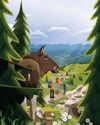
MOOSE ALERT! (THAT'S NO BULLWINKLE)
We thought we were prepared for any wildlife encounter. But not this one.

KEEPER of the FLAME
His best friend died a hero's death in Vietnam. Six decades later, he won't let us forget.
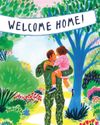
WELCOME HOME!
The best part about leaving? Coming back.
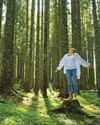
HOW NATURE HEALS
Getting outdoors is as close to a cure-all as you'll find. It's fast and free, with few (if any) side effects.
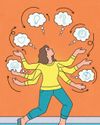
Paying Attention to Adult ADHD
New awareness and diagnostic tools are helping more of us understand how our brains work
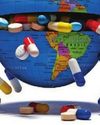
News FROM THE WORLD OF MEDICINE
WHY IT'S SMART TO GET THE EARLY-BIRD SPECIAL

My Forever Tree
A beloved sugar maple slowly succumbed to disease. Today, she lives on in a new form.
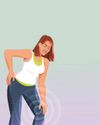
New Ways to Relieve Pain
Don't resign yourself to a life of discomfort. Here's how to stop hurting.

THE SQUATTER IN MY HOUSE
YOUR HOME IS YOUR CASTLE-UNTIL SOME STRANGER INSISTS IT'S THEIRS
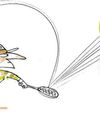
Serving Some Tennis Facts
A GRAND SLAM isn't just a four-run homer in baseball or a breakfast order at Denny's. It also refers to winning tennis's four major tournaments, two of which are about to start: the French Open (May 25 to June 8) and Wimbledon (June 30 to July 13).
